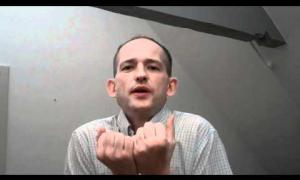Book Review: Theodore Sorensen and the Kennedys: A Life of Public Service
December 18, 2019
Ted Sorensen never stopped sharpening his tools.
Review of: Theodore Sorensen and the Kennedys: A Life of Public Service by Michelle A. Ulyatt, PhD (Palgrave Macmillan, 2019, 257 pages)
In this age of Trump, as Michelle Ulyatt notes in her introduction to Theodore Sorensen and the Kennedys, “there seems no better time to reflect on the life of an inspiring public servant who serves as an example of what loyal, consistent men of integrity can achieve in service of their nation.” That’s the enduring popular view of Sorensen, the political counselor and speechwriter/ghostwriter who steadily advised not only President John F. Kennedy, but also his brothers Robert and Edward.
This book takes readers through Sorensen’s aspects of professional life, with about 200 pages looking closely at his years with JFK (with emphasis on Sorensen’s counselor role during key moments like the Cuban Missile Crisis, or in the shaping of President Kennedy’s domestic agenda). The last 50 or so pages present highlights from his post-White House work up to his death in 2010.
Michelle Ulyatt has published a solid scholarly work, built on citations and footnotes that include references to personal papers and correspondence she accessed through visits to the JFK Presidential Library and Museum. Some speechwriters and executive communicators who read this book may be hoping to walk away with career lessons drawn from Sorensen’s life. This being an academic volume, these readers won’t find lessons presented here in neat little boxes or parables—but the lessons are there, for those who seek them.
When speechwriters think of Sorensen, they may picture in their minds a composite of all those photographs showing the President and his main speechwriter conferring on some important matter. These iconic photos have helped foster a mythology around the close connection between Kennedy and Sorensen.
As Theodore Sorensen and the Kennedys shows, however, the success of their partnership was not built in a single day. Sorensen joined Kennedy’s Senate staff in 1952, and subsequently collaborated with the future President on not only innumerable “speeches, statements and articles,” but also the Pulitzer prize-winning book Profiles in Courage, all long before the two sat down in the Oval Office. If executive communicators want to venerate Sorensen, then let us admire this son of Nebraska for his hard work over many years to try to master his boss’ voice, phrasing and rhythm.
Some speechwriters have the good luck to, early in their careers, enjoy an association with a public figure—and then go on to help curate the memory of that public figure through by writing books, delivering lectures, etc. Sorensen would do this for Kennedy, just as the late Dr. William Ewald did the same for President Eisenhower. Another example would be Loris Francesco Cardinal Capovilla, who served as personal secretary to Pope John XXIII; Cardinal Capovilla not only wrote extensively about the beloved churchman, but also ran a museum about John XXIII’s life.
Another admirable aspect of Sorensen’s life underlined in Ulyatt’s book is how, while carrying out his curatorial efforts after President Kennedy’s death, he didn’t shy away from directly involving himself in the rough-and-tumble of politics as the opportunity arose—no retirement to a distant ivory tower for him. He unsuccessfully sought the Democratic Party nomination in 1970 for Robert Kennedy’s US Senate seat. President Jimmy Carter put forward Sorensen for consideration as Director of Central Intelligence in 1977, but the nomination would be later withdrawn in the face of intense bipartisan opposition that emerged during Sorensen’s confirmation. (It is a shame Ulyatt could give this intriguing episode, which saw some of Sorensen’s fellow Democrats turning their backs to him and President Carter, just a few pages.)
Both disappointments no doubt gave Sorensen further insights into hardball politics and persuasion, enriching his perspective as an advisor and speechwriter. The same could be said for Sorensen’s efforts on behalf of the unsuccessful presidential campaigns of Gary Hart and Michael Dukakis.
Like any superb craftsman, Sorensen knew that sharp tools are safer to work with than dull ones, and produce better results. And so he never stopped honing the contents of his toolbox. You may nick a finger from time to time, as happened to Sorensen with Hart and Dukakis—but that’s the price of being ready, as Sorensen was, in the twilight of his years, to assist Barack Obama’s presidential effort.
If Sorensen’s final years offer any lasting lessons to his fellow scribes, this may be the one most worth remembering.


